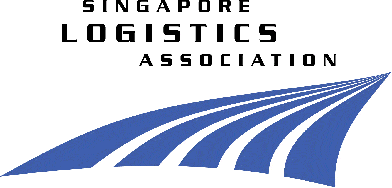Cross Border Trucking for Malaysia & Singapore
Cross border trucking plays a critical role in the movement of goods and services between Malaysia and Singapore. The two countries are important trading partners, and cross border trucking has become a popular mode of transportation for cargo, including raw materials and finished goods. We will examine the advantages of cross border trucking, the logistical challenges it faces, the legal regulations and tax implications, and the future outlook of cross border trucking for Malaysia and Singapore below.
Advantages of Cross Border Trucking
Cross border trucking offers several advantages for businesses in Malaysia and Singapore. Firstly, it is a cost-effective mode of transportation, particularly for short to medium distances. Cross border trucking enables businesses to transport their goods more quickly than other modes of transportation and at a lower cost. Secondly, cross border trucking provides greater flexibility for businesses by allowing them to choose a route that suits their specific needs, whether it's a direct route or an alternative route that avoids congestion or other obstacles.
Thirdly, cross border trucking promotes better communication and collaboration between businesses in Malaysia and Singapore. It facilitates direct communication between businesses and their suppliers and customers, allowing them to monitor their cargo's progress and respond faster to changes in the supply chain.
Challenges of Cross Border Trucking
Despite the advantages of cross border trucking, it also faces several challenges. One major challenge is traffic congestion at border crossings. Delays at the border can cause disruption to the supply chain and result in increased costs for businesses. Additionally, cargo theft is also a concern and can cause significant losses for businesses. Businesses must take measures to ensure the security of their cargo during transportation.
In addition to traffic congestion and cargo theft, cross border trucking also faces challenges related to compliance with regulations and differing legal systems between Malaysia and Singapore. Lack of harmonization in regulations between the two countries can result in misunderstandings and additional costs related to customs clearance procedures.
Moreover, differences in infrastructure and road maintenance also pose challenges for cross border trucking. The quality of roads and highways can vary widely between Malaysia and Singapore, and businesses must anticipate potential delays and added costs due to road conditions and maintenance.
To address these challenges, businesses should partner with experienced freight forwarding agents that have a deep understanding of the regulatory and legal landscapes in both countries. These agents can help businesses effectively navigate customs clearance and regulatory requirements while ensuring the security of their cargo. Additionally, businesses should invest in cargo tracking and monitoring systems to quickly identify and respond to any potential issues related to traffic congestion or cargo theft. Ultimately, mitigating these challenges will help businesses ensure the smooth and efficient movement of goods and services between Malaysia and Singapore.
Legal Regulations and Tax Implications
Cross border trucking between Malaysia and Singapore is subject to various legal regulations and tax implications. For instance, businesses must comply with customs clearance procedures, which can be complicated and require accurate documentation. Additionally, businesses must ensure that their cargo complies with local laws and regulations, including regulations related to prohibited items, weight limits, and safety standards.
Cross border trucking may also be subject to taxes, including import and export duties, excise taxes, and Good & Services Tax (GST). Businesses must be aware of the taxes applicable to their cargo and ensure that they comply with tax regulations.
Future Outlook and Technological Advancements
The future of cross border trucking between Malaysia and Singapore looks bright. The two countries are working together to enhance cross border trade and transportation, with various infrastructure improvements underway.
Technological advancements are also improving the efficiency and safety of cross border trucking. For instance, telematics technology allows trucking companies to track their trucks in real-time, improving the accuracy of delivery times and enhancing cargo security. Other technological advancements, such as autonomous vehicles and drones, also offer the potential to improve the efficiency and safety of cross border trucking.
Conclusion
Cross border trucking is a critical mode of transportation for businesses in Malaysia and Singapore. It offers several advantages, including cost-effectiveness, flexibility, and improved communication between businesses. However, cross border trucking also faces challenges, including traffic congestion and cargo theft. Businesses must comply with legal regulations and tax implications related to cross border trucking and remain up to date on any changes in regulations.
The future of cross border trucking between Malaysia and Singapore looks promising, with infrastructure improvements and technological advancements bringing new opportunities for businesses. As the two countries continue to work together to enhance cross border trade, cross border trucking will remain an important mode of transportation, providing businesses with a fast, efficient, and cost-effective way to transport their goods and services between Malaysia and Singapore.
Land Freight Forwarding
Multi-Modal Shipping Rates
Our Partners





Megaton Shipping Pte Ltd
2 Leng Kee Road, #03-11
Thye Hong Centre
Singapore 159086
☏ (+65) 6473 7688
